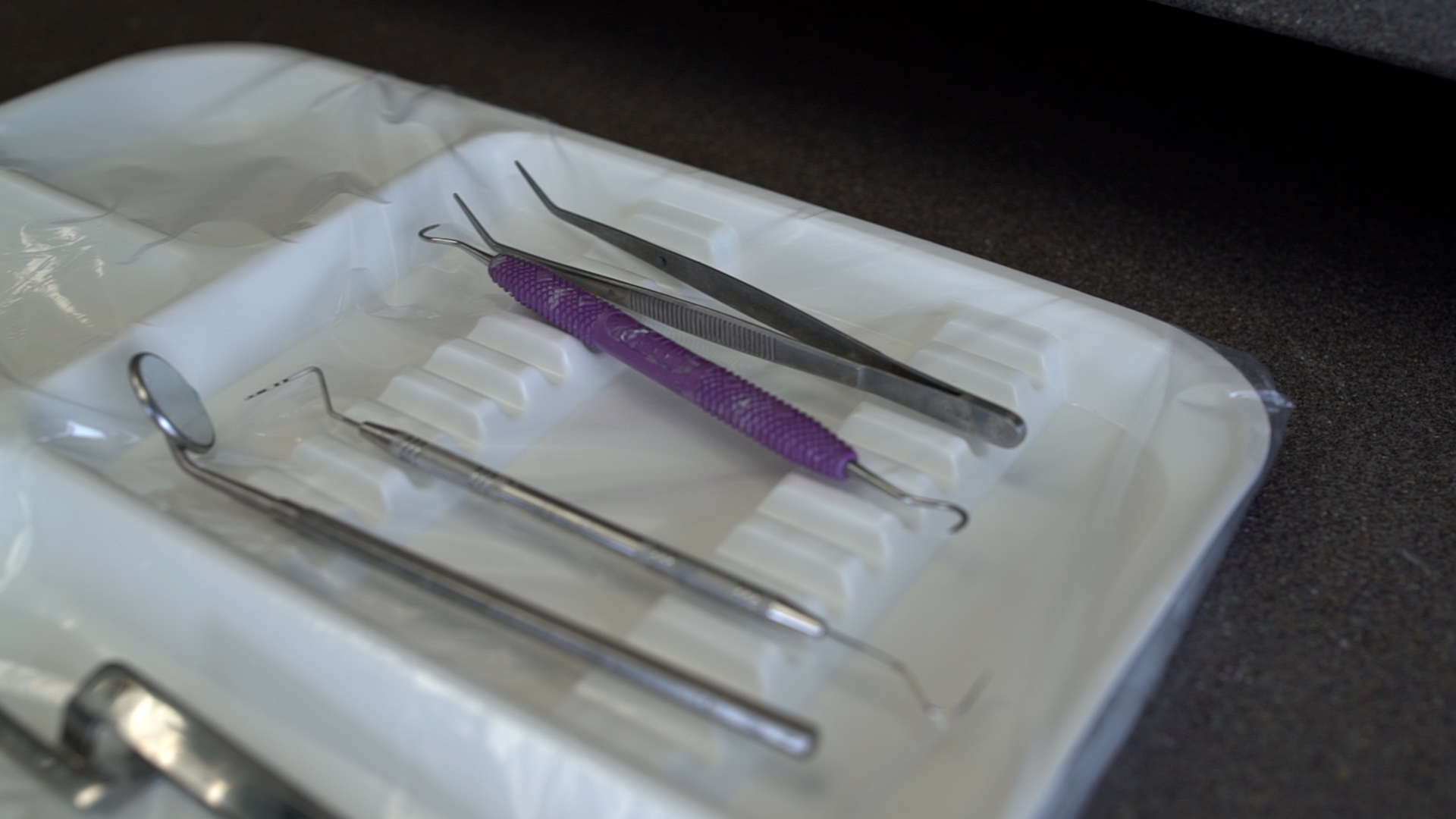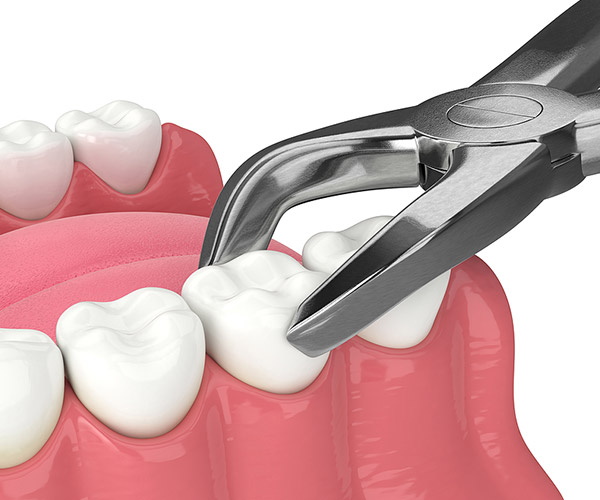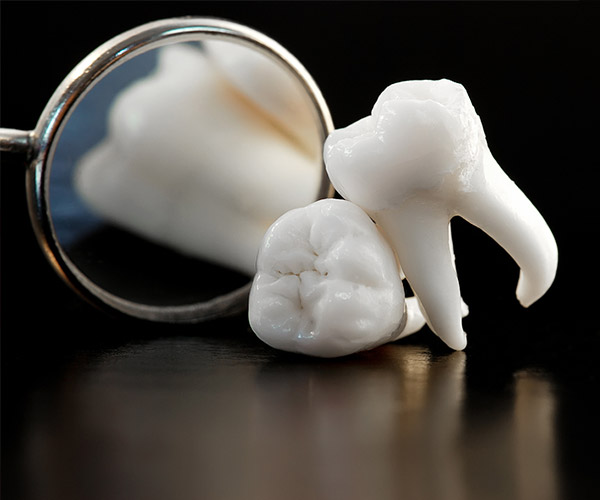A tooth extraction is an important procedure that paves the way for a future of good oral health.

What is Tooth Extraction?

When the entire tooth structure — crown plus root — is removed, it’s called an extraction. Dentists perform extractions for several reasons. Some of the most common are:
- To remove a damaged tooth because it is severely infected or decayed or irreparably damaged due to trauma
- To relieve an impacted tooth (a tooth that has not erupted properly), as happens often with wisdom teeth
- To alleviate crowding, as part of jaw development treatment, or to make room before orthodontic treatment
No matter the reason for an extraction, it can be an important procedure to improve your oral health.
What are the benefits of a Tooth Extraction?
Many patients think of a tooth extraction as a last resort, but it is really a way to preserve and improve your oral health. When Dr. Gray recommends a tooth extraction, his one and only goal is to give you the best possible outcome.
- A tooth extraction can help protect other teeth from damage, infection, and decay.
- A tooth extraction is an effective way to permanently eliminate the pain and discomfort associated with a damaged, infected, or impacted tooth.
- A tooth extraction is an important procedure in jaw development treatment, often used to eliminate crowding and alleviate jaw joint issues.
- A tooth extraction can pave the way for needed cosmetic and restorative treatments such as braces, dental implants, and dentures
WISDOM TEETH REMOVAL
Getting your wisdom teeth removed can save you pain and money and preserve your long-term oral health.

What are Wisdom Teeth?
The third molars that erupt in our late teens are commonly called wisdom teeth because they come at a more advanced age. For many people, as their wisdom teeth come in, they can become impacted, cause other teeth to shift, or cause pain, discomfort and jaw problems. Impacted wisdom teeth never actually erupt from the gums, which can lead to infection as well as other oral health issues. However, in a large number of cases, impacted wisdom teeth cause zero discomfort. That doesn’t mean they aren’t contributing to other problems though.
Why do we have Wisdom Teeth?
Millions of years ago, our early ancestors needed wisdom teeth to break down raw meat and vegetation, which was an important part of their diet. It was important for these teeth to come in later in life as a means of survival and to replace teeth that would have inevitably fallen out due to decay and injury. If you’ve ever been to a museum and seen an exhibit on ancient humans, you may have noticed that their jaws were notably bigger, which meant they could accommodate three sets of molars.
As the millenia passed and cooked food increasingly became the dietary norm, wisdom teeth became less necessary. This significant change in our diets caused modern humans to evolve to have much smaller, narrower jaws that more often than not have insufficient space for wisdom teeth when they come in. This, in turn, causes a host of oral health issues that we can usually correct by removing some or all of the wisdom teeth.
What are the benefits of having Wisdom Teeth Removed?
- Removing wisdom teeth gives your other teeth the space they need to stay in the proper position, possibly preventing the need for corrective treatments like braces or palate expansion
- Removing wisdom teeth, especially if they are impacted, protects your jaw and your other teeth from damage
- Removing wisdom teeth reduces your chances of developing decay, gum disease, and other infections in your molars
- Removing wisdom teeth makes it easier to maintain your good oral hygiene at home
Tooth Extraction and Wisdom Teeth Removal can make a painful situation disappear and significantly improve your ability to achieve and maintain excellent oral health.
For additional information about tooth extraction and wisdom teeth removal or if you are concerned about one or more of your teeth, please contact us to book a consultation with Dr. Gray.




